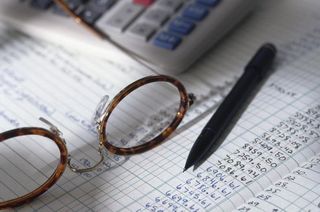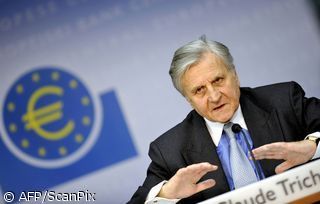Estonia announced strong economic growth figures for the fourth quarter of 1999, appearing to mark the end of a recession triggered by economic turmoil in neighboring Russia.
Published:
30 January 2000 y., Sunday
The economy expanded by 4 percent in the fourth quarter of last year, the first significant growth registered for 1999, according to the Estonia_s ministry of finance. In the first two quarters of last year, the economy shrank—by almost 6 percent in the first quarter and 2 percent in the second. In the third quarter, the economy grew by a paltry .2 percent. Even with strong year-end growth, the economy in 1999 still contracted overall by 1 percent. But a finance ministry spokesman, Daniel Vaarik, said Monday_s fourth-quarter data meant Estonia was officially out of recession.
He said annual GDP growth for 2000 should be around 4 percent. The official said the improved world economy had boosted Estonia_s economic performance. He argued that government steps to reign in spending also underpinned the recovery. Others analysts also pointed to growing consumer demand, an increasingly dynamic banking sector and lower interest rates as key factors. Fast-paced growth followed the implementation of tough market reforms in the early 1990s, with annual growth in Estonia peaking at 11 percent in 1997. But like with other countries in Eastern Europe, the collapse of the Russian market in 1998 came as a blow. Russia was a main export market for many large Estonian industries and farmers, and they were hit especially hard. Like Estonia, Latvia and Lithuania also saw growth rates drop following the deepening economic crisis in Russia. But after near-zero growth in 1999, they say they also expected growth rates of between 3-4 percent for 2000.
Copying, publishing, announcing any information from the News.lt portal without written permission of News.lt editorial office is prohibited.
The most popular articles
 The European Commission has authorised under EU state aid rules a €550 million capital injection and a €400 million guarantee in favour of the Austrian bank BAWAG. P.S.K. The Commission found the measures to be in line with EU state aid rules.
more »
The European Commission has authorised under EU state aid rules a €550 million capital injection and a €400 million guarantee in favour of the Austrian bank BAWAG. P.S.K. The Commission found the measures to be in line with EU state aid rules.
more »
 EUROSTAT has reported that the sharpest annual decrease in hourly labour costs of -10.9% was observed in Lithuania in the 3rd quarter of 2009.
more »
EUROSTAT has reported that the sharpest annual decrease in hourly labour costs of -10.9% was observed in Lithuania in the 3rd quarter of 2009.
more »
 Statistics Lithuania informs that, according to the Labour Force Survey data, the number of the unemployed in III quarter 2009 made 228.1 thousand.
more »
Statistics Lithuania informs that, according to the Labour Force Survey data, the number of the unemployed in III quarter 2009 made 228.1 thousand.
more »
 What has come to be termed as the "Great Recession" seems to have come to an end in the third quarter of 2009.
more »
What has come to be termed as the "Great Recession" seems to have come to an end in the third quarter of 2009.
more »
 The European Commission has authorised, under EU State aid rules, a measure adopted by Lithuania to limit the adverse impact of the current financial crisis on exporting firms.
more »
The European Commission has authorised, under EU State aid rules, a measure adopted by Lithuania to limit the adverse impact of the current financial crisis on exporting firms.
more »
 The schedule of Vilnius International Airport (VIA) is supplemented with 3 more new directions; the airline company airBaltic starts regular flights to Paris today, to Munich tomorrow, and to Berlin on Monday.
more »
The schedule of Vilnius International Airport (VIA) is supplemented with 3 more new directions; the airline company airBaltic starts regular flights to Paris today, to Munich tomorrow, and to Berlin on Monday.
more »
 The Governing Council of the European Central Bank (ECB) has decided to start the main construction works for its new premises in spring 2010.
more »
The Governing Council of the European Central Bank (ECB) has decided to start the main construction works for its new premises in spring 2010.
more »
 AB Bank SNORAS was granted the award from NASDAQ OMX Baltic Stock Exchange for the jubilee 15-year listing of the bank’s shares on NASDAQ OMX Vilnius Stock Exchange.
more »
AB Bank SNORAS was granted the award from NASDAQ OMX Baltic Stock Exchange for the jubilee 15-year listing of the bank’s shares on NASDAQ OMX Vilnius Stock Exchange.
more »
 Parex banka has established a subsidiary, SIA NIF, which will professionally manage assets that are not related to the Bank’s core business.
more »
Parex banka has established a subsidiary, SIA NIF, which will professionally manage assets that are not related to the Bank’s core business.
more »
 Mariann Fischer Boel, European Commissioner for Agriculture and Rural Development, today put forward a plan to ensure that Greece will put in place the systems necessary to allow EU aid payments to be made to farmers.
more »
Mariann Fischer Boel, European Commissioner for Agriculture and Rural Development, today put forward a plan to ensure that Greece will put in place the systems necessary to allow EU aid payments to be made to farmers.
more »